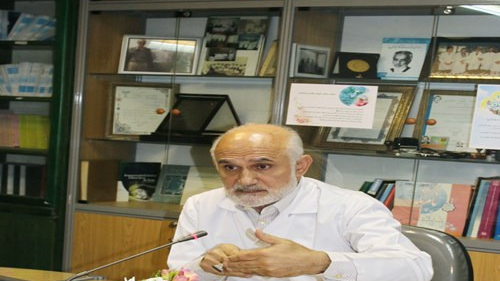IAARI Webinar: World Primary Immunodeficiency Week, 2022

The opening ceremony of the webinar on primary immunodeficiencies, held on April 27, 2022, started with a message from Dr. Mostafa Moin , the Director of the Iranian Society of Asthma and Allergy (ISAA):
"The Primary Immunodeficiency Week, which is held on a yearly basis, provides the opportunity for basic and clinical immunologists, allergists, and experts from other fields of biomedical sciences to interact and exchange the latest advances in the field.
The term "immunity" is derived from the ancient word "Immunitas" which bore the meaning of the exemption granted by the Roman state. Today, this translates into the immunity conferred against outsider microorganisms. Among the contribution of both ancient and modern scholars, we can name Muhammad ibn Zakariya al-Razi who studied the immunogenic aspects of infectious diseases, Louis Pasteur and his discovery of cholera, anthrax, and rabies microbial agents, and Robert Koch's research on tuberculosis bacillus and its inoculation. They have all been a source of inspiration and have forged the way for students and future scholars. Nowadays, we know that the intricate role genetics, epigenetics, and the environment play adds up to cause a wide variety of diseases, including primary and acquired immunodeficiencies, asthma, allergies, autoimmune disorders, and malignancies.
Today, 70% to 90% of the estimated 6 million patients worldwide, with any of the 430 varieties of primary immunodeficiencies, lack a definite diagnosis. This is largely due to the complex nature of the disease, various signs and symptoms, physicians' lack of an up-to-date knowledge, and lack of public awareness.
With the advancement of biomedical science and technology—especially in the past three decades in the fields of immunopathology and immunogenetics—immunology has helped in prenatal and early postnatal diagnosis and treatment of primary immunodeficiencies. This calls for ever more effective communication between the basic and clinical sciences, both on domestic and global scales; this includes taking measures to translate preclinical studies, neonatal screening, and using the primary immunodeficiency disease registries. In Iran, these advances have been reflected in an increase in the number of scientific publications in international databases.
Finally, I would like to thank all my dear colleagues and members of the Iranian Society of Asthma and Allergy, the esteemed members of the Board of Directors, and Dr. Shokri, the secretary of the Primary Immunodeficiencies Week of 2022. I sincerely hope that such programs can eventually benefit all physicians, nurses, students, healthcare executives, patients, and their families.
The session continued with talks on the following topics:
- 1-signs of primary immunodeficiencies, by Dr. Mohammad Nabavi
- 2-The International Union of Immunological Societies (IUIS) classification system, by Dr. Nasrin Bazargan
- 3-Diagnostic tests for primary immunodeficiencies, by Dr. Rasool Molatefi
- 4-Treatment and patient follow-up in primary immunodeficiencies, by Dr. Nasrin Behniafard
















comment